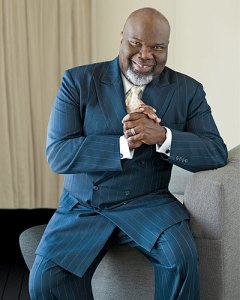On asking better questions...

 The latest gathering of the Elephant Room is now history. It stirred up no small amount of controversy. James MacDonald's decision to host prosperity preacher T.D. Jakes, whose views on the Trinity have been murky at best, was greeted with concern from a number of quarters. The concern was due to the fact that the stated purpose of the Elephant Room was to gather brothers who differed on issues not central to the gospel or Christian orthodoxy for the purpose of promoting greater understanding. A worthwhile goal, I would say. But that little detail about the discussion being among brothers who differ on secondary matters is a substantial detail. Promoting understanding and unity is really only possible when brothers agree on the essentials of Christian orthodoxy. It seemed, and seems to many that T.D. Jakes certainly did not fit the bill.
The latest gathering of the Elephant Room is now history. It stirred up no small amount of controversy. James MacDonald's decision to host prosperity preacher T.D. Jakes, whose views on the Trinity have been murky at best, was greeted with concern from a number of quarters. The concern was due to the fact that the stated purpose of the Elephant Room was to gather brothers who differed on issues not central to the gospel or Christian orthodoxy for the purpose of promoting greater understanding. A worthwhile goal, I would say. But that little detail about the discussion being among brothers who differ on secondary matters is a substantial detail. Promoting understanding and unity is really only possible when brothers agree on the essentials of Christian orthodoxy. It seemed, and seems to many that T.D. Jakes certainly did not fit the bill.Concern was voiced by some of MacDonald's fellow council members at the Gospel Coalition. Mark Dever, who was involved in the first Elephant Room discussion, withdrew from further involvement. Thabiti Anyabwile, another Gospel Coalition council member, wrote a moving and eloquent article explaining how the inclusion of Jakes in such a forum would undermine those black pastors who, seeing the damage done by prosperity preachers, have labored to build churches on sound doctrine. Even some pastors from within the Harvest network of churches expressed their deep concern over the inclusion of Jakes.
But now the event is over and nothing has changed. Not really. Jakes was asked about his beliefs regarding the Trinity. His answers, while satisfying to those in the Elephant Room, we actually not nearly as clear as some claim. Glaringly absent were any questions about Jakes' continued propagation of the abhorrent prosperity and word/faith heresies. These are every bit as troublesome as his ambiguity on the Trinity.
Carl Trueman and Frank Turk have both written worthwhile posts on this whole affair.
This request that we ask hard questions in the right venue, and consider the ER to have signally failed in this regard, will no doubt evince cries of `Hey, hater!' from some quarters. That is apparently the standard reaction now when anyone questions the actions of a successful pastor of a large church. If, however, we take true doctrine seriously, then surely we will see false teaching for what it is: soul destroying. Reflect on a parallel situation for a moment: let us say that, week after week, I see a congregant's wife with a black eye and an arm covered in cuts and bruises; eventually I ask her husband, `Did you do that?' to which he says `No, I abhor violence and despise the sort of people who beat their wives'; in such circumstances, is it unloving, Pharisaical or hateful of me to press the question a little further? I think not. Indeed, failure so to do would be moral delinquency of the highest order. To press the matter is actually responsible pastoring. The same thing applies with those whose public teaching seems to be deviant. It is not hateful to press the hard questions, and to do so with appropriate competence and in a suitable context; rather, it is right and necessary.
- Carl Trueman




